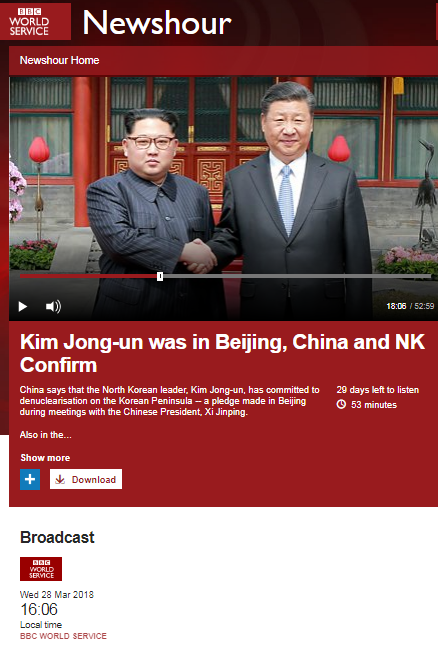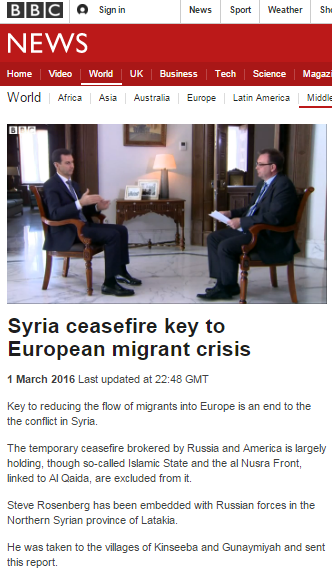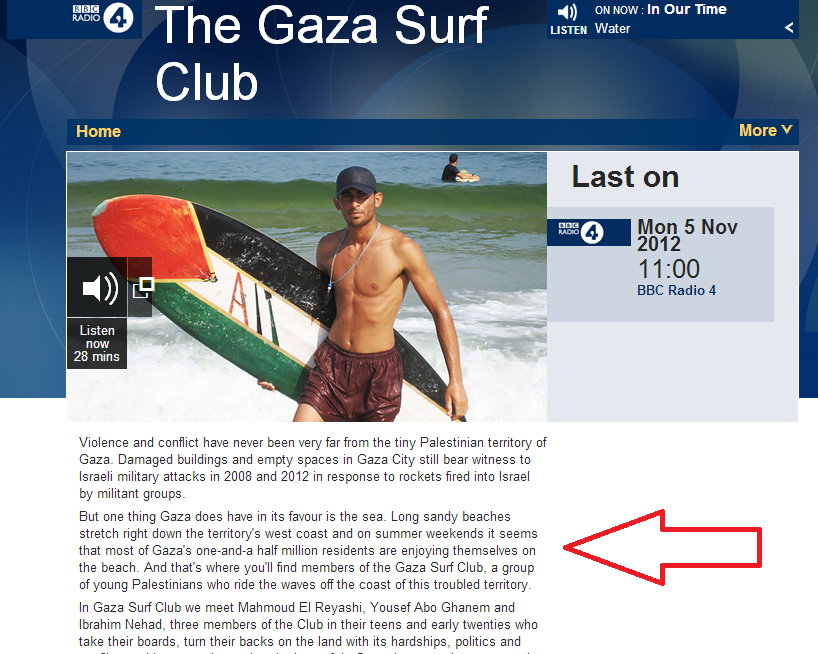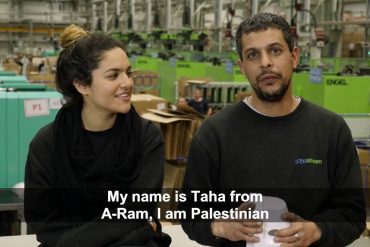When Israel announced last week that it had destroyed a nuclear reactor in the Deir ez Zor region of Syria over a decade ago, the BBC News website described the facility’s purpose as “suspected” and BBC Jerusalem bureau correspondent Tom Bateman opined that the reason for the timing of the announcement was “to add a sharper military edge to American diplomatic pressure on Europe to toughen its stance on the 2015 nuclear deal between Iran and six world powers” while ignoring other no less plausible factors.
BBC News still not sure al Kibar was a nuclear reactor
In the March 28th edition of the BBC World Service radio programme ‘Newshour‘, listeners heard presenter Julian Marshall (from 18:06 here) describe the al Kibar facility in similar language and give a portrayal of the intention of the announcement which is not supported by material presented later on in the item. As is usually the case, BBC audiences heard Hizballah described as an “armed group” rather than a terror organisation.
[emphasis in italics in the original, emphasis in bold added]
Marshall: “Israel conformed for the first time last week that it destroyed a suspected nuclear reactor being built in Syria over a decade ago. Israel officials say the public acknowledgement was meant as a message to their country’s enemies that they’re prepared to act against any serious threat. During Syria’s civil war two of those enemies – Iran and the Lebanese armed group Hizballah – have expanded their presence and influence in the country as they fought on the side of President Bashar al Assad. Our Middle East correspondent Yolande Knell has been looking at the impact.”
Knell: “An Israeli military video shows fighter jets a decade ago bombing the nearly complete al Kibar facility in eastern Syria. International experts said it was very likely the site was a nuclear reactor but Syria denied it. And Israel is only now confirming it carried out the strike. So why now? Its Chief of Staff Lt. Gen. Gadi Eizenkot:”
V/O Eizenkot: “The message of the attack on the Syria nuclear reactor in 2007 was that Israel will not tolerate the development of abilities that threaten the existence of our state. That was the message in 1981 when we attacked Iraq’s nuclear facility and again in 2007 and this is the future message to our enemies.”
Obviously Eizenkot did not say in that March 21st interview that “the public acknowledgement was meant as a message to their country’s enemies” as claimed by Marshall, but that the strike itself on the reactor over a decade ago was the message. Knell went on to promote the same theory as her Jerusalem bureau colleague with regard to the intention of the announcement, claiming that Iran is “now” seen as a threat – when in fact, as the BBC itself has reported, Israel has been voicing concerns about Iran’s nuclear capabilities for many years – and making no mention of Iran’s long history of serial threats against Israel.
Knell: “Israel’s news shows quickly pointed out the link to Iran. It’s now seen as an existential threat because of its nuclear programme and there are fears about its plans in neighbouring Syria. Already Israel’s believed to have hit one Iranian base under construction there. Recently Fox News reported on another one.”
Fox News anchor: “New satellite photos reveal Iran has established another permanent military base outside Damascus.”
Although the BBC published a report in November 2017 about Iranian bases in Syria, audiences have not seen any follow-up reporting on that topic.
For almost five years (since May 2013) the BBC has been telling its audiences that Israel is ‘involved’ in the civil war in Syria.
BBC Q&A on alleged Israeli air strikes is political polemic
BBC presentation of Israeli view on Syria intervention replete with inaccuracies
BBC News again claims Israeli involvement in Syria’s war
BBC Syria war backgrounder recycles inaccurate claim
However, Knell then presented listeners with a different view:
Knell: “The defence analyst at Israeli newspaper Ha’aretz, Amos Harel, says that for seven years Israel’s tried to keep out of the Syrian conflict. Now increasingly it’s being drawn in.”
Harel: “Now comes a different stage of the war because it’s rather evident that the Assad regime has won this game, so to speak, and that the sides that helped Assad are more or less fighting for the spoils and this could be dangerous for Israel. One is the growing Iranian presence at the region and specifically in the southern Syria. You have militia that may be present there. And the other is the growing role of Hizballah.”
After listeners heard sounds from a video game, Knell again downplayed Hizballah’s terror designation and Iran’s provision of funding and weapons to its proxy militia.
Knell: “A new video game brought out by the Lebanese Shiite armed group Hizballah which is backed by Iran. Players fight alongside government forces in Syria against rebels including so-called Islamic State. Hizballah’s lost hundreds of men in this war but Mohanad Hage Ali from Beirut’s Carnegie Middle East Center says its military strength has grown.”
Ali: “They’re trying out their different capabilities whether on the ground or the new weaponry that they’re using and trying to expose as much as they can from all of their fighting force to the conflict in Syria to gain experience. They are also training other forces; they set up a number of groups. And all of these supposedly will be part of their influence in Syria for a very long time.”
Refraining from informing listeners that Hizballah has tens of thousands of missiles at its disposal and making no mention of the fact that weapons transfers to Hizballah are prohibited under the terms of UN Security Council resolution 1701,Knell went on:
Knell: “That’s a big worry for Israel, which just completed joint military training with US troops. These exercises were routine but reflect current fears. One simulated a massive missile attack. Israel has struck in Syria dozens of times, acting – it says – to stop Iran adding advanced weapons to Hizballah’s arsenal. Although for now, Hizballah’s deputy leader Sheikh Naim Qassem considers war unlikely.”
V/O Qassem: “I clearly express the view of Hizballah that it’s ready to confront any aggression if Israel decides to carry out any foolish action but it doesn’t seem to be the right circumstances for Israel to decide to go to war.”
Notably, Knell did not bother to mention the border dispute that the BBC has to date failed to report as a factor for potential “escalation”.
Knell: “The danger lies in an unplanned escalation. Last month this happened. The IDF shot down an Iranian drone after it infiltrated Israeli air space and then struck at its control site in Syria. One of its jets was hit by a Syrian missile and crashed. Israel launched attacks on Iranian and Syrian targets in Syria. Russia apparently calmed the situation but it was a reminder how a bloody civil war could turn into a wider regional one.”
For five years the BBC has been promoting the erroneous notion that Israel is involved in the war in Syria. It has repeatedly failed to clarify to its audiences that strikes on Iranian weapons bound for Hizballah or responses to cross-border fire from Syria do not mean that Israel is “involved” in that war but are responses to the Iranian and Hizballah aggression against Israel that long predates that conflict.
While this report may indicate that at least one BBC journalist has rethought that mantra, the fact that the corporation consistently fails to provide serious coverage of relevant issues, such as the failure of UN SC resolution 1701 to achieve its aims, Iranian arming and funding of Hizballah (which the BBC serially refuses to describe as a terror organisation) and Iran’s establishment of a military presence in Syria, means that BBC audiences lack the information crucial to understanding of the background and context to any future developments.
Related Articles:
Why BBC audiences won’t understand the next Israel-Hizballah conflict – part one
Why BBC audiences won’t understand the next Israel-Hizballah conflict – part two




